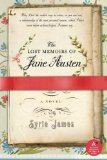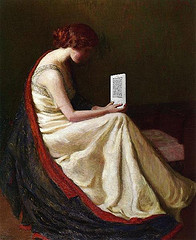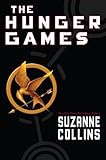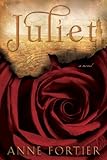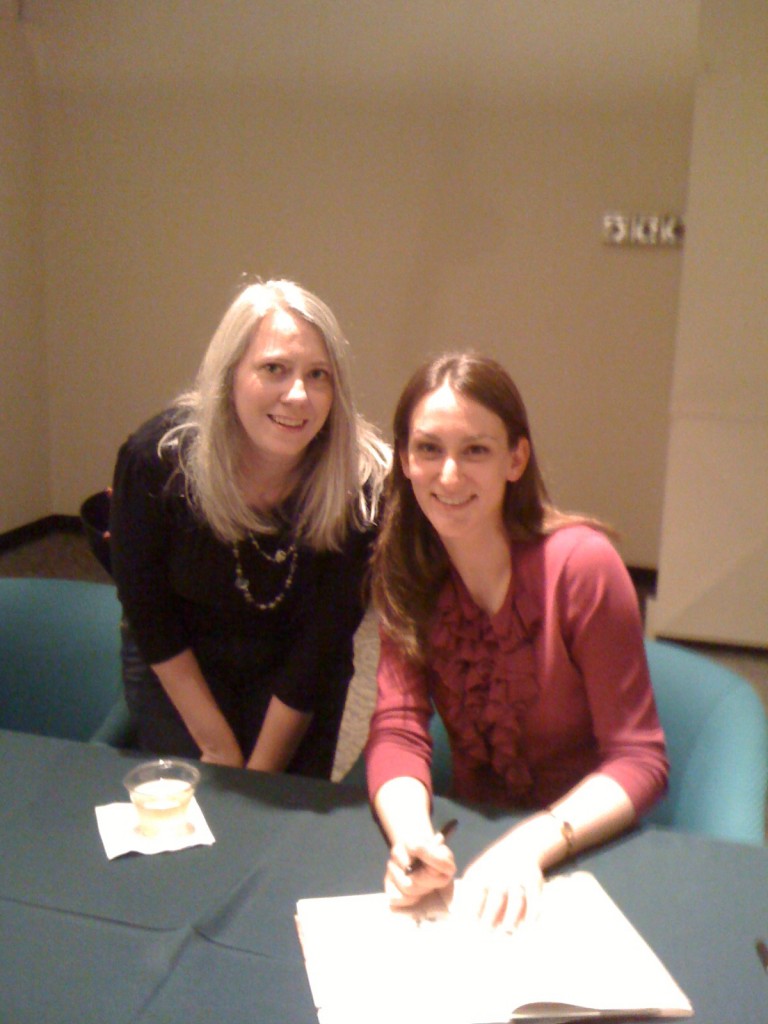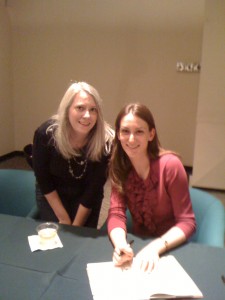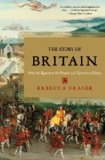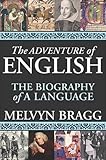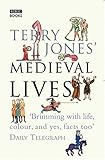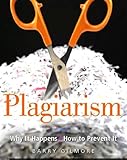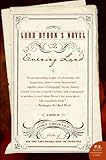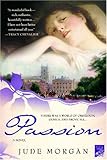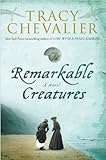Oooh, I haven’t participated in Top Ten Tuesday in a while, and even though it’s technically Thursday, this one looks like too much fun to pass up. This week’s theme is Top Ten Books for People Who like ______. I’ve been unpacking my books, and I’ve been thinking about the connections among my different reads. My husband made the remark today that we have a lot of good books, and we really shouldn’t need to go to the bookstore in a while given how many great books we have. He’s right.
- If you like the [amazon asin=0545162076&text=Harry Potter] books, you should try Jasper Fforde’s Thursday Next series: [amazon asin=0142001805&text=The Eyre Affair], [amazon asin=0142004030&text=Lost in a Good Book], [amazon asin=0143034359&text=The Well of Lost Plots], [amazon asin=014303541X&text=Something Rotten], [amazon asin=0143113569&text=Thursday Next: First Among Sequels], [amazon asin=0143120514&text=One of Our Thursdays is Missing], and joining the ranks in October, [amazon asin=067002502X&text=The Woman Who Died A Lot]. Jasper Fforde’s series is hilarious bookish fun, and even has a few references to the Harry Potter series.
- If you like Emily Brontë’s classic [amazon asin=0143105434&text=Wuthering Heights], you will enjoy Sharyn McCrumb’s historical fiction retelling of the infamous Tom Dooley case, [amazon asin=0312558171&text=The Ballad of Tom Dooley]. McCrumb herself has described the novel as Wuthering Heights in the Appalachians, and it’s true. The story’s characters greatly resemble their counterparts in Wuthering Heights in many ways. I loved it.
- If you liked [amazon asin=143918271X&text=A Moveable Feast] or [amazon asin=0743297334&text=The Sun Also Rises] by Ernest Hemingway, try Paula McLain’s excellent novel [amazon asin=0345521307&text=The Paris Wife] for Hadley’s side of the story. One of the best books I read last year. Highly recommended.
- If you liked [amazon asin=0143106155&text=Jane Eyre] by Charlotte Brontë, you will enjoy an updated retelling of the story, [amazon asin=0062064223&text=The Flight of Gemma Hardy] by Margot Livesey. I liked this book a lot more than I thought I would.
- If you liked Diana Gabaldon’s [amazon asin=0440423201&text=Outlander] series, try Jennifer Donnelly’s Tea Rose series, beginning with [amazon asin=0312378025&text=The Tea Rose]. [amazon asin=1401307469&text=The Winter Rose] and [amazon asin=1401307477&text=The Wild Rose] round out the series, but the first one is the best one.
- If you liked [amazon asin=161382310X&text=Moby Dick], or even if you only sort of liked it because it got bogged down in cetology, but you liked the good parts, you will love [amazon asin=0061767654&text=Ahab’s Wife]. Oh.My.Gosh. One of my favorite books ever. Sena Jeter Naslund’s novel introduces the amazing persona of Una, wife of Captain Ahab, from one line in which Ahab mentions her in Moby Dick, and she’s one of the most incredible fictional people you’ll ever meet. I love her. She is one of my fictional best friends.
- If you liked [amazon asin=0316038377&text=Twilight], but you wished you could read about grown-ups, and you wanted less purple prose and better writing, try Deborah Harkness’s [amazon asin=0143119680&text=A Discovery of Witches], the first book in the All Souls Trilogy. The second book, [amazon asin=0670023485&text=Shadow of Night], comes out in about a week. You will like Matthew much better than Edward. Trust me.
- If you liked [amazon asin=0143105426&text=Pride and Prejudice] and [amazon asin=0486295559&text=Persuasion] by Jane Austen, and you are a little unsure of all those Austen sequels, try out Syrie James’s fictionalized what-if? novel [amazon asin=0061341428&text=The Lost Memoirs of Jane Austen] that wonders aloud whether or not Aunt Jane had a real romance that inspired her great books.
- If you liked Suzanne Collins’s thrilling [amazon asin=0545265355&text=Hunger Games series], you will enjoy Veronica Roth’s [amazon asin=0062024035&text=Divergent] and its sequel [amazon asin=0062024043&text=Insurgent]. Not sure when the next book in the trilogy comes out, but I can’t wait. Her books are amazing. They will remind you of The Hunger Games without feeling anything at all like a ripoff.
- If you liked [amazon asin=0486415864&text=Great Expectations] and [amazon asin=1612930999&text=The Turn of the Screw], you will love John Harwood’s [amazon asin=B000I5YUJE&text=The Ghost Writer]. The book makes several allusions to both novels, but it also contains four complete short stories within the text of the novel (written by the protagonist’s grandmother), and it’s set in a creepy house with a secret.
Bonus: If you like Victorian novels period, and you want to read a love letter to the Victorian novel, or if you like Daphne Du Maurier’s [amazon asin=0380730405&text=Rebecca], try Diane Setterfield’s [amazon asin=0743298039&text=The Thirteenth Tale].
Feel free to add your own recommendations in the comments. Just because my husband says we have a load of good books doesn’t mean I’m not always looking for more.

